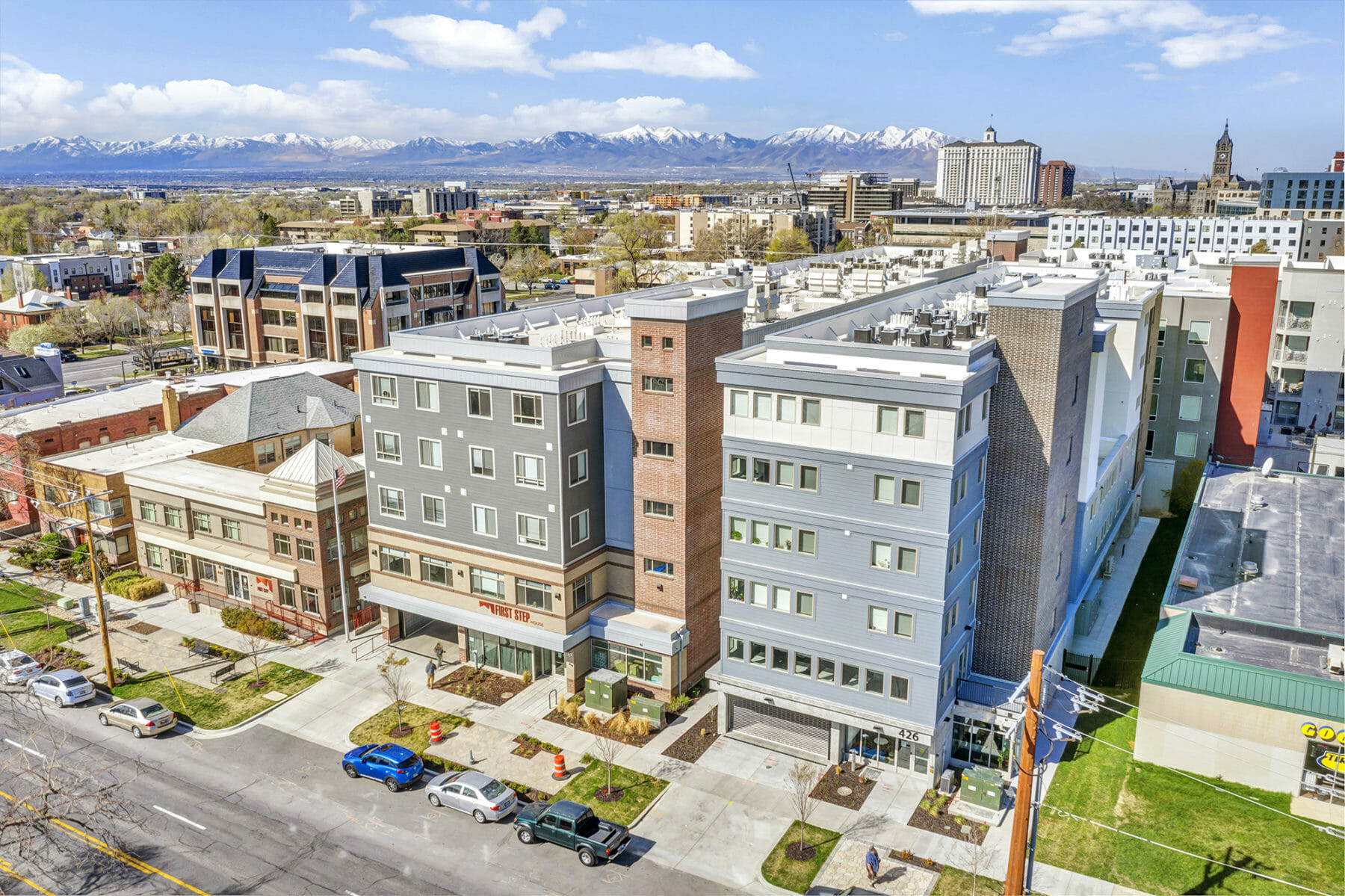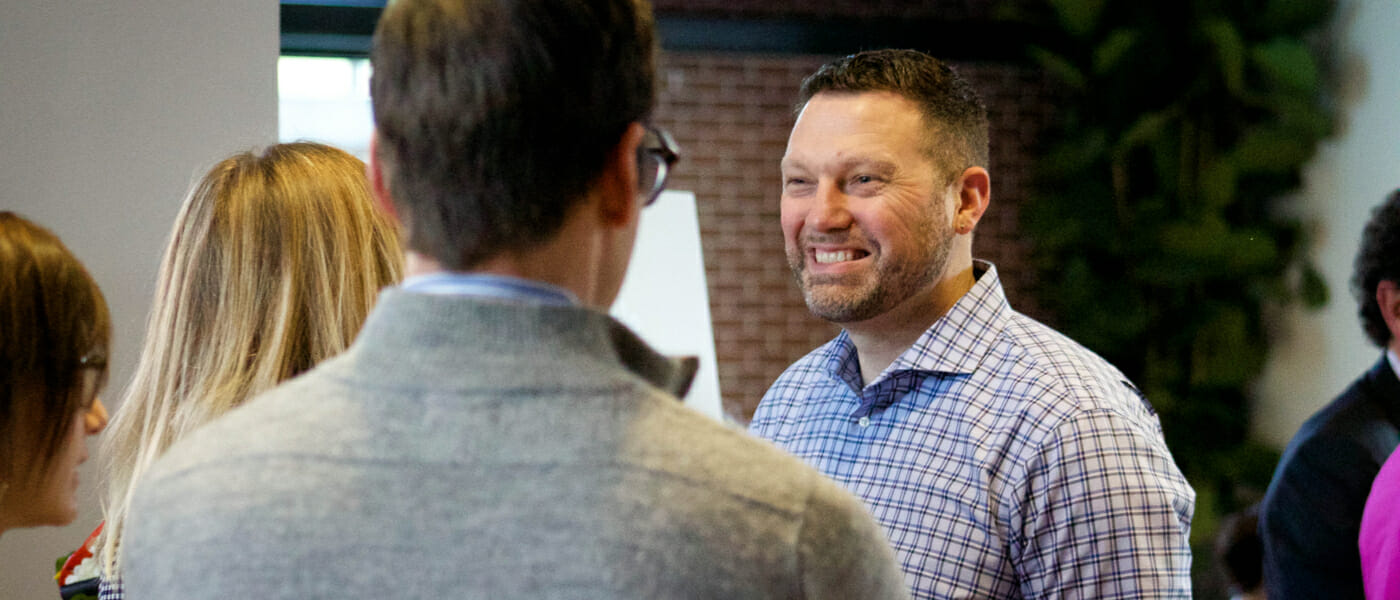Housing
We offer a suite of housing services to meet the diverse needs of our clients including housing case management, recovery residence (sober living), transitional housing, and permanent supportive housing.
We offer a suite of housing services to meet the diverse needs of our clients including housing case management, recovery residence (sober living), transitional housing, and permanent supportive housing.

Our housing case management program is provided as part of our extensive wrap-around services that address our clients’ clinical and therapeutic treatment needs. This program serves individuals who are homeless and at-risk of homelessness, many of whom have chronic behavioral health conditions. Through our services, we have been able to reduce barriers related to homelessness, unemployment, and behavioral health conditions. Case managers administer a needs assessment with our clients and develop targeted, goal-driven case management plans. Our case managers are expertly trained to connect people with a wide range of resources, including housing, financial resources, SSI/SSDI benefits, education services, career development, legal services, vocational training, employment, medical services, dental services, community support, and health insurance. Case managers ensure clients reduce barriers to long-term stability and housing by helping them identify housing opportunities in the community and working with partner agencies to connect clients to housing programs and vouchers that best suit the individual’s situation.
Case management provides a holistic approach to services by helping to assist in a multitude of areas. We help to assist clients with mental and physical health needs, employment training and resources, education services, financial education and budgeting, navigating legal systems and charges, connecting to and sustaining housing, linking to additional benefits and community resources and crisis planning.
Case management at First Step House is unique in that we can often provide time unlimited services due to the dynamics of our funding. Once someone is enrolled in our case management services, we can provide case management ongoing for as long as a person wants or needs to engage in services. We can continue to assist someone after they have completed treatment. We also work to connect individuals with other community resources if funding or services end for other reasons.
First Step House strives to hire experienced, professional and passionate case workers to provide services to our clients. We certify our case managers through the Department of Substance Abuse and Mental Health. We are trained in the Homeless Management Information System (HMIS) to input services. Each case manager completes an in-depth onboarding and competency testing. We provide services through the lens of trauma informed care and utilize motivational interviewing to assist clients towards change. We participate in ongoing education and training to keep our skills sharp and learn new resources in our community.
First Step House provides affordable housing for clients who need a sober living environment that will support their recovery. We continually work to improve our facilities and develop new housing options. The goal of our recovery residence program is to help clients develop independent living skills and transition to permanent housing while supporting their behavioral health conditions. We currently manage transitional housing units that provide housing for those transitioning from substance abuse treatment into society, as well as, individuals participating in mental health court. Housing is a critical component of long-term recovery and our data show that stable housing is related to successful treatment completion.
While in transitional housing, our clinical staff works with residents to identify issues that contribute to homelessness. A comprehensive action plan is developed to address the factors contributing to their homelessness with the goal of developing the skills and behaviors necessary to live independently. The program includes direct supervision and guidance to help residents access resources, work towards self-sufficiency, obtain and sustain permanent, affordable housing, and develop strong connections to the community. Our housing case managers help clients complete housing applications, work with property managers, coordinate with partners, including the local housing authorities, and assist with voucher programs throughout the community.
As long as you are compliant and actively engaged in our outpatient program, there is no time limit.
Yes, Recovery Residence has single rooms program wide.
Yes, you will provide urinalysis testing through our outpatient program.
Yes, as long as they are sober and do not stay overnight.
No, and you can stay at other places as long as you are checking in with the Recovery Residence Program Manager every day.
Not permanently, but staff stops by to do checks every single day.
Permanent Supportive Housing helps strengthen communities and is a crucial step to reducing homelessness. The goals for our permanent supportive housing facilities are to ensure that each resident has access to the services they need to increase their quality of life, maintain housing stability, prevent harm, improve their health and well-being, decrease the need for hospitalizations, emergency room visits reduce recurrence and recidivism, and support the development of prosocial relationships. Ultimately, our permanent supportive housing program is designed to reduce barriers to long-term stability, health, and recovery. Our housing coupled with robust on-site supportive services improve mental and physical wellbeing for residents and reduce community costs by diminishing rates of homelessness and interactions with the emergency healthcare and criminal justice system.
The individual meets the approved definition of homelessness, or near homelessness and meets criteria for having a Serious Mental Illness, as defined by ‘The Utah Scale on Serious Mental Illness.’ The individual must also meet definition for being a person with a disability, or disabling condition. The individual’s meets the current income guidelines of 30% or less of the Area Median Income. A written recommendation has been, or can be, provided by a physician or an approved practitioner of the healing arts for “supportive living.” The individual must also have OPTUM Legacy Medicaid.
Medina Place is permanent housing with a project-based voucher associated with the apartment. As long as you qualify for the voucher, you can live at Medina Place as long as you would like.
You need to have a case manager, or a therapist complete a referral form and submit it to the program manager of Medina Place. The program manager will reach out to you by phone and schedule an interview to see if you qualify. The program manager will reach out to the person who referred you to let you know if you qualify or not.
No pets are allowed. If you have special needs for a companion animal and have documentation from a professional, you can have your companion animal live with you.
No. Medina Place is an apartment complex for people serious about recovery, do not need to be in treatment and are stable enough to live their life independently of needing treatment. As addiction is chronic for the tenants, if a slip up or relapse occurs, we have support staff around to help you get into treatment, drug test, meet with a therapist, direct you to support meeting or any other thing you need. Sober living is designed to be temporary, living at Medina Place is designed to be permanent.
No. Each unit is single-dwelling units. You cannot have children living with you. If you are married, you will not qualify for the complex.
Have your referral source fill out a referral form through DocuSign here
If you make more than the Area Median Income (AMI) at the time of your lease signing, you will need to plan to move out of Medina Place. Housing Connect and First Step House is here to help you succeed and will work with you to help you be successful.
Recovery Residence (Sober Living) – 34 beds; Permanent Supportive Housing – 115 beds/units; Veteran’s Transitional Housing – 72 beds.
Case management, housing action plans, connection to housing vouchers, housing locators, landlord liaison services, home visits, barrier reduction, and housing support services.
“Well, as it turned out, First Step absolutely changed my life! What makes First Step such a great program is all the one-on-one help that I got from all the staff… I feel that my case manager really put her heart into what she does, and I am so happy that I have had a chance to work with her, and to continue on.”
“I’ve always said, that First Step has a lot figured out, rebuilding us emotionally, physically, helping us get back into society, work force, and then sober living gets you ready for the real world. I would like to thank First Step and staff for everything.”

We offer a true continuum of care including evidence-based substance use disorder and mental health treatment, targeted case management, supportive employment, healthcare, and physical housing. We advocate for and case manage people from homelessness and triage to treatment completion, recovery housing, employment, permanent housing, and self-sufficiency.
At First Step House, we recognize that treatment is necessary, but insufficient on its own for sustaining the long-term, whole health needs of an individual. Offering supportive services in conjunction with behavioral health treatment creates long-term positive outcomes for our target population. We are a research-based healthcare provider committed to transforming the cultural norms of our sector that contribute to health disparities and inaccessible or ineffective care.
Visit our Admissions Department today to learn more about our treatment, case management, and housing programs. We provide comprehensive and client-centered services to help people build productive, meaningful, and healthy lives.